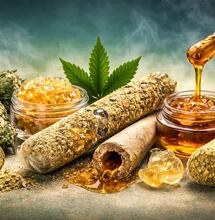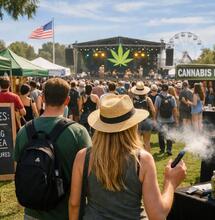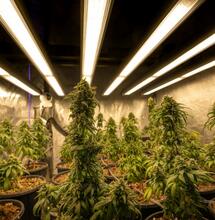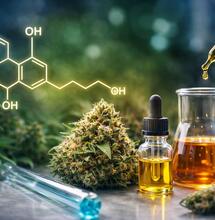Psychedelics in the Footsteps of Cannabis
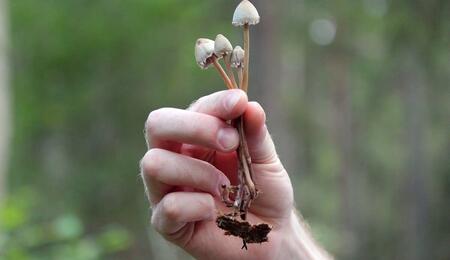
In the last couple of years, there has been a growing number of initiatives campaigning for psychedelics, primarily to regulate them for therapeutic uses. The psychedelics movement is very similar to how Cannabis started. Most recently, psychedelics were on the ballot in Massachusetts, where the proposal was rejected by voters. In previous elections, Colorado and Oregon voters accepted measures to legalize or decriminalize certain psychedelic substances, such as psilocybin, the mind-altering compound found in magic mushrooms.
Both cannabis and psychedelics share similar cultural and regulatory challenges. One way to make it legal is to go on the ballots and ask the voters. As marijuana has become legally available in more than half of the United States, a new question started to appear on state ballots, one about regulating hallucinogenic substances found in certain fungi.
Most recently, Massachusetts voters had the chance to decide on a bill that would have allowed those of legal age to cultivate, possess, and use specific psychedelic substances, such as psilocybin, psilocin, mescaline, and similar – of course, with restrictions and supervision, and only for personal use. The ballot initiative in Massachusetts ultimately failed, but everything points out that there is a building momentum around psychedelics.
The Psychedelics Movement Is Following Suit with Cannabis
Both Cannabis and psychedelics are illegal federally, being classified for decades as Schedule I drugs. Although, marijuana is expected to be moved down the list and become a Schedule III drug.
Another common thing that Cannabis and psychedelics share is that pretty much they have the same advocacy groups. Proponents hail the medical benefits of psychedelics as a major argument for decriminalization, and they have adopted more or less the same political agenda of a plodding state-by-state legalization.
While there has been a lot of buzz around legalizing psychedelics, it also seems that it won’t be so “easy” as it was with Cannabis (it wasn’t easy at all). An industry around psychedelics has been set up and is in-the-building, with investors coming in – just like they did in the early days of Cannabis. But things could play out way differently than they did with marijuana.
A major obstacle for hallucinogens has been the fact that these drugs cost thousands of dollars more to manufacture and distribute than the herb medicine.
But High Costs Is Only One of the Roadblocks
Expectedly, access to psychedelics in places where they’re legal is another dissimilitude. You cannot get psilocybin the way you would purchase a pack of weed from a legal cannabis store.
There’s always the high price, too. For example, a single purchase of psychedelics in Oregon can cost more than $1000, while a gram of weed in legal pot shops can be obtained for as little as $5. Knowing that, it isn’t hard to conclude that perhaps a different destiny awaits psychedelics than becoming a multi-billion industry in the near future.
Legal psychedelics are typically available at special service centers, which have high utility costs. It’s way easier and cheaper to find magic mushrooms on the street, but for those who want or need the drug legally, going to the service center is currently the only option. Fungi cultivators have to abide by specific state rules and regulations, and all produced drugs must undergo lab testing. If a single dose of mushrooms is available for around $50 on the streets, it is at least three times the cost to get it from a service center. Accessing it for as little as $150 would be a lottery.
It’s different also in terms of infrastructure. For instance, while Oregonians can purchase flower and cannabis extracts from over 800 legal cannabis stores, legal psychedelics are accessible through a modest number of around 30 psilocybin centers.
“To date, the health authority [of Oregon] has licensed about 1,000 staff, including 350 facilitators who work directly with clinics while they’re on the hallucinogen. The agency has also licensed 30 psilocybin centers – from the Portland area to Eugene to Ashland and beyond – along with a dozen manufacturers and one lab,” the Oregon Capital Chronicle reported.
Backed by Research, Psychedelics Took Different Marketing Path
Cannabis legalization efforts started without substantial scientific research to support the movement. Not that it was possible to do a lot of research on cannabis in the U.S. anyway. The opportunities for researchers were very limited back in the day. But things have changed and now science is the magic card that activists use when presenting psychedelics to the public as well as legislators.
“In the U.S., cannabis went for legalization in states before (there was) a ton of research. It led with the legalization, whereas psychedelics led with the research,” says a recent statement from Dr. Lynn Marie Morski, a former physician with the U.S. Department of Veterans Affairs who currently serves as president of the Psychedelic Medicine Association, MJBizDaily reported.
Suffice to say, research on psychedelics has been completely halted between the late 1960s and early 2000s. The first to obtain regulatory approval to reinitiate scientific probing into psychedelics were Baltimore researchers with the John Hopkins University, who in 2006 released a ground-breaking study that for the first time spoke of the long-term benefits of a single dose psilocybin use.
In 2019, the Center for Psychedelics & Consciousness Research (CPCR), again supported by the Johns Hopkins School of Medicine, became the first ever institute on psychedelics in the U.S. Between 2019 and 2024, the center has published more than 150 peer-reviewed articles in scientific papers.
Since last year, 2023, some research has also been financed by the federal government, after a Republican-led Congressional committee approved funding for a pilot trial to assess the effects of both medical cannabis and psychedelics. The clinical study is focused on psychedelic treatments for servicemen suffering from PTSD, traumatic brain injury or chronic traumatic encephalopathy. Treatments could include psilocybin, but also other mind-altering drugs such as MDMA, Ibogaine, and DMT.
What Does a Second Trump Presidency Mean for Cannabis and Psychedelics?
Incoming president Donald Trump has so far favored Robert F. Kennedy Jr. to lead the Department of Health. If granted the authority, Kennedy could push forward positive regulatory changes for both cannabis and psychedelics, as he has actively supported both in the past. At the same time, Kennedy has also caused some worries due to his views on vaccines, and the fact that he has previously backed false claims that vaccines can cause autism, a theory thoroughly debunked by science, The New York Times wrote recently.
Nevertheless, RFK Jr. may move forward with federal decriminalization of cannabis, a job left unfinished by the outgoing Biden administration. He has proposed a model that, reportedly, focuses on lifting federal obstacles, letting states regulate cannabis as they deem fit, and collecting federal tax money from marijuana that could be used for public health projects like setting up rehabilitation centers in rural areas. A policy change could also mean formally integrating cannabis businesses into the existing banking sector and infrastructure.
As per decriminalization of psychedelics at the federal level, it’s probably too early to say anything. Decriminalization should theoretically solve problems with excessive costs of psychedelics by letting people cultivate and use the drugs on their own. But there are numerous challenges to introducing such legislative changes, as well as there is much stronger opposition than for Cannabis. In the meantime, questions about legalizing psychedelics will probably continue to pop up on state ballots, which remains the steadiest route to get to a point where we can speak about federal relaxing of the rules.
Also read on Soft Secrets:




